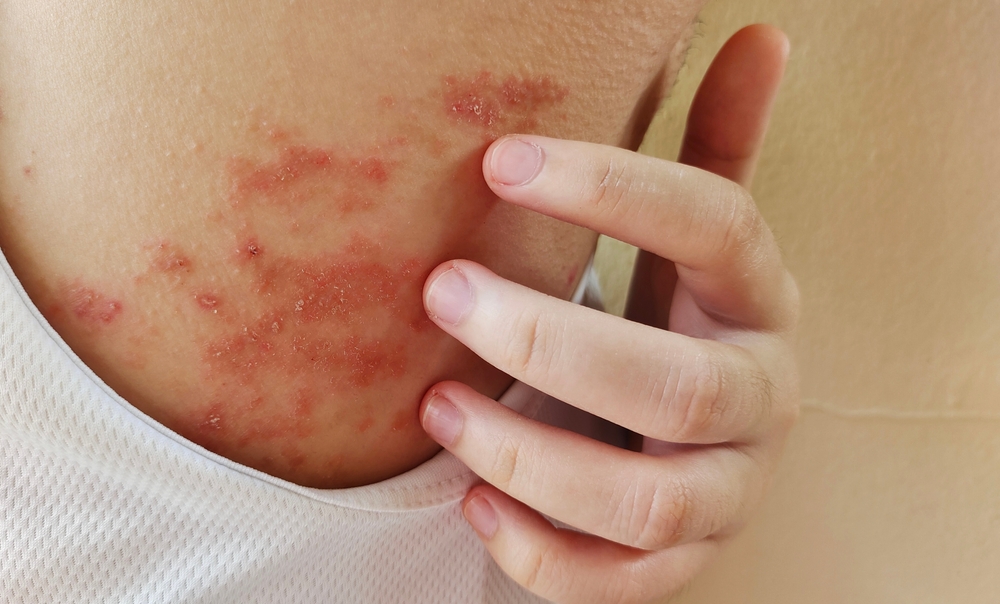ATOPIC DERMATITIS OR ECZEMA CAN IMPACT INFANTS, CHILDREN AND ADULTS
London Dermatology | 1 December 2024
Atopic dermatitis is a persistent skin condition characterised by itchy, scaly rashes. It’s an eczema type.
Other forms of eczema include:
– Contact dermatitis
– Dyshidrotic eczema
– Nummular eczema
– Seborrheic dermatitis
The cause of atopic dermatitis is a skin reaction. Redness, swelling, and itching persist as a result of the reaction. Because their skin lacks certain proteins that keep the skin’s water barrier intact, people with atopic dermatitis may be more sensitive.
Infants are most commonly affected by atopic dermatitis. It could begin as early as two to six months of age. By early adulthood, many people outgrow it.
Asthma and seasonal allergies are common in people with atopic dermatitis. Asthma, hay fever, and eczema are among the allergens that frequently run in families. Atopic dermatitis patients frequently have positive allergy skin test results. However, allergens are not the cause of atopic dermatitis.
The following can make atopic dermatitis symptoms worse:
– Allergies to pollen, mold, dust mites, or animals
– Cold and dry air in the winter
– Colds or the flu
– Contact with irritants and chemicals
– Contact with rough materials, such as wool
– Dry skin
– Emotional stress
– Drying out of the skin from taking frequent baths or showers and swimming very often
– Getting too hot or too cold, as well as sudden changes in temperature
– Perfumes or dyes added to skin lotions or soaps
Severe itching is typical. Before the rash ever shows up, itching may begin. Because itching occurs first, followed by a skin rash from scratching, atopic dermatitis is frequently referred to as the “itch that rashes.”
The duration of atopic dermatitis is protracted. By treating it, avoiding irritants, and maintaining proper skin hydration, you can manage it.
Around the age of five or six, the illness usually begins to go away in youngsters, but flare-ups are common. The issue is typically a chronic or recurring ailment in adults.

